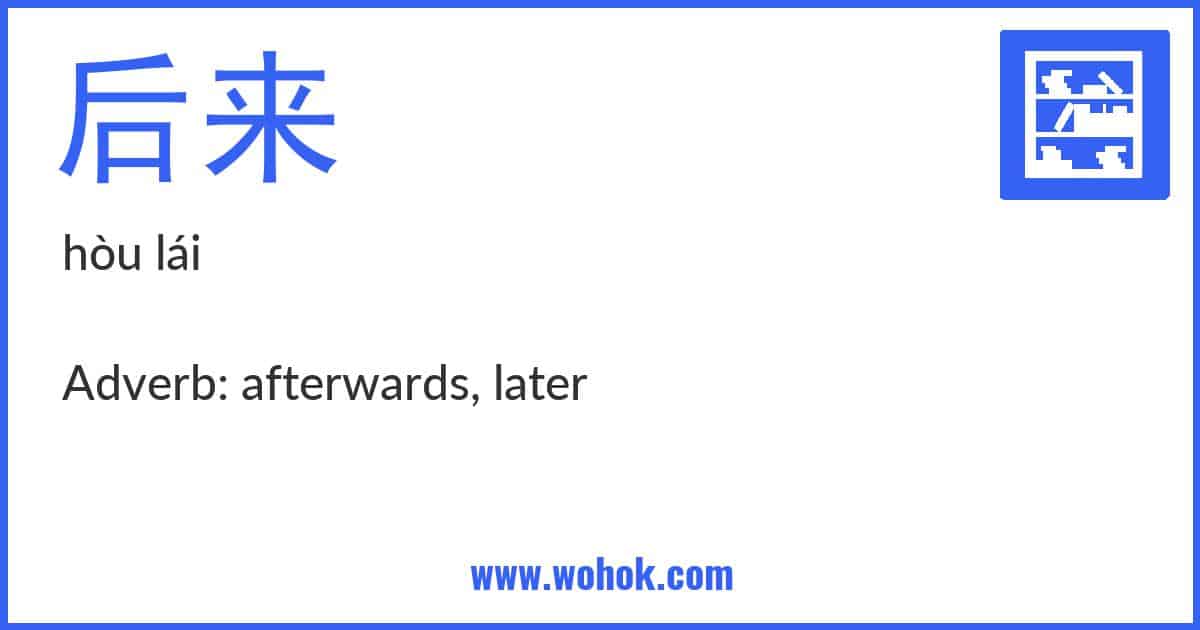The Chinese word 后来 means “later” or “afterwards”. It is commonly used to describe events that have occurred after a certain point in time, or to indicate a change in circumstances. For example, you might say “后来我去了北京” which means “Later on, I went to Beijing”. The word 后来 can also be used to express a sense of regret or hindsight, as in “后来我才知道” which means “Later on, I found out”.
Translation
Adverb: afterwards, later
Pronunciation
Example Sentences
| Chinese | Pinyin | Engish |
|---|---|---|
| 后来他终于明白了自己的错误 | hòulái tā zhōngyú míngbái le zìjǐ de cuòwù | Eventually, he understood his mistake |
| 我们一开始并不喜欢这个地方,但是后来我们爱上了它 | wǒmen yī kāishǐ bìng bù xǐhuān zhège dìfāng, dànshì hòulái wǒmen ài shàng le tā | We didn’t like this place at first, but later we fell in love with it |
| 我本来不想去的,但是后来我还是去了 | wǒ běnlái bù xiǎng qù de, dànshì hòulái wǒ háishì qù le | I didn’t want to go originally, but later I still went |
| 后来他成为了一名著名的画家 | hòulái tā chéngwéi le yī míng zhùmíng de huàjiā | Later, he became a famous painter |
| 我们一开始打算去海边,但是后来改变了主意 | wǒmen yī kāishǐ dǎsuàn qù hǎibiān, dànshì hòulái gǎibiàn le zhǔyì | We initially planned to go to the beach, but later changed our minds |
HSK
后来 is part of HSK Level 4 in HSK 2.0. In the newer HSK 3.0 it is part of HSK Level 2.
Learning Card


